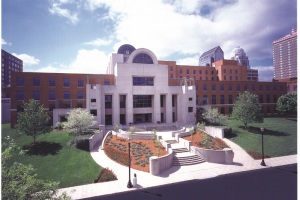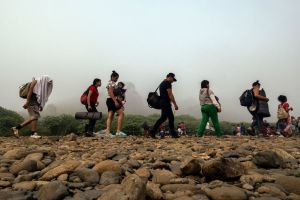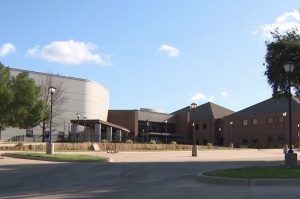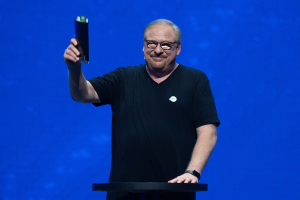Texas pastor details realities of human smuggling: Ransom gets paid or people get killed
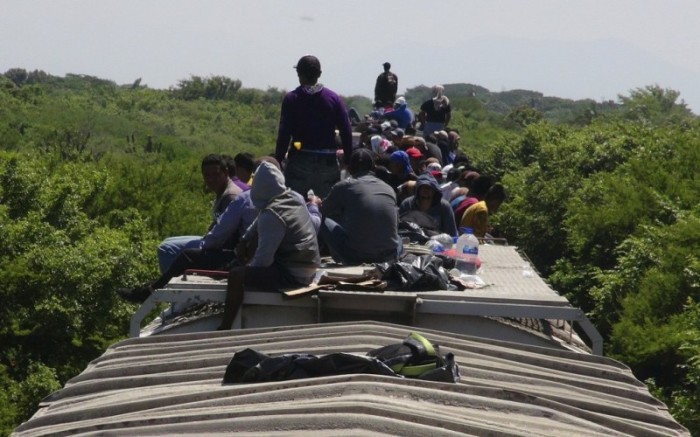
The cartel member waiting in the sunny Walmart parking lot with a captive beside him looked just like anyone else, said Pastor Robert Sanchez of El Tabernaculo Church in San Juan, Texas.
In an interview with The Christian Post, Sanchez described how he, along with a fellow pastor, had arrived to deliver a ransom in exchange for a 15-year-old boy brought across the border by a cartel to join his relatives in the United States.
The standard cartel price for a border crossing is $1,500 paid on each side of the border. But often gang members ransom the people they take across for even more money, Sanchez explained.
Somewhere in the U.S., the boy’s relatives had gathered enough money to smuggle him into the country and gave the final ransom payment to the two pastors so they could make the drop.
“Once the relatives know, they’ll pay any money,” Sanchez said. “When human traffickers don’t collect, they’ll just kill them.”
The boy wasn’t afraid or shaken because he had already spent months traveling with the cartel to cross the border, the pastor added.
The well-dressed cartel member drove a new Lincoln Navigator, had clean-cut hair and no tattoos. He demanded the money and then released the boy to go with the pastors, Sanchez recalled. Then the gang member showed the AR-15 under his coat.
“You never have seen me. You never have heard of me, and this never happened," Sanchez remembers the gang member telling the other pastor. "Take your boy and never remember who I am.”
Sanchez has pastored El Tabernaculo Church for 32 years. Incidents like this one are so common that he doesn’t need to ask for protective anonymity, he said.
On three occasions, he unwittingly rented a rental property he owned to cartel people smugglers.
Sanchez discovered his mistakes when neighbors warned him that dozens of people had been packed into the small property for days.
After he called law enforcement to deal with the cartel members, he had to hire a cleaning service for the apartment. It took three days to remove the trash and sanitize the apartment.
“It’s strange, weird and somewhat normalized. This was almost standard procedure for people in the area with relatives,” he said. “I was afraid, nervous and uncertain, yet with a greater confidence because I was doing the right thing. You do what you have to do to rescue this boy.”
Originally from Mexico, Sanchez traveled to the U.S. in high school and got a college education while navigating the system of visas which allowed him to legally remain in the U.S., he said.
When he finished school, the pastor said he felt God called him to start a church near the border, where he would be a missionary to all of South America without ever leaving his own country.
“One of my biggest burdens in my heart is to preach the Gospel to people as they come across the border,” Sanchez said. “They change their perspective so they’re not coming to look for money, but so they can become productive citizens in the United States. The United States is a blessed country where there are numerous opportunities.”
Most people who cross the border are good people fleeing violence or looking for work to support their families, he assured. But a sizeable minority are violent and dangerous criminals. Illegal immigration depends on organized crime, Sanchez contended.
Sanchez’s experiences in ministry have stretched and challenged him.
As long as the U.S. remains a prosperous and peaceful country, people will try to cross the border, he said. And sometimes, they'll do it illegally.
“I’ve had to question myself many times and ask God what my job is in these situations,” he said. “I never help people cross the border illegally. It wouldn’t be right. But if someone has crossed and they’re in danger, it’s my job to help them. When they’re in our land, I say we have a moral obligation and spiritual obligation to be the hands of Christ for the foreigners and give them water and food and show them the love of Christ.”
Sanchez and his church saw a rise in illegal immigration happen during the Obama administration, he said.
To help meet the needs of the people crossing the border illegally, Sanchez’s church of nearly 200 people volunteered at a local Catholic shelter for illegal immigrants.
“For about a month, our church had about 75 people daily volunteering at the shelter 16 hours per day,” he said. “Shelters were so overwhelmed it was incredible. They’re in a time where they’re very vulnerable. It’s a prime time to give them the Good News.”
Sanchez argues that the inrush of illegal immigrants can trace its origins to the policies of the Obama administration.
From 2009 to 2011, the Phoenix Field Division of the Bureau of Alcohol, Tobacco, Firearms and Explosives permitted the sales of nearly 2,000 guns to Mexican cartels in an attempt to track buyers and sellers. They called it “Operation Fast and Furious.”
The gangs used the guns to fight a drug war, Sanchez said.
“Many people were killed, pastors were kidnapped, churches were ransacked. In those eight to 10 years, most people who had a legal visa to visit the U.S. came across legally and overstayed their visa. They were basically running for their life,” he said. “We know who funded it and who promoted it.”
While criticism of the operation began in 2011 under the Obama administration, a similar probe was reportedly carried out during the final years of the George W. Bush administration through the same ATF office in which over 200 weapons were involved and about a dozen ended up in Mexico.
It wasn’t just violence that drove people to cross the border, Sanchez said. Across Mexico, Central America and South America, activists have promised immigrants safe passage across the border. Activist group Pueblo Sin Fronteras organized the illegal immigrant caravans that attempted to cross the border in 2019.
“People from Central America and Mexico would tell us there were people paid to work in those towns telling people to come to the U.S., that the border was open, and that they would get free transportation, hotels and food,” Sanchez said.
Although the cartels have often encouraged illegal immigration because they profit from it, these activists were unrelated to the drug groups, Sanchez said. During the Obama administration, people came north in such numbers that Border Patrol had no idea what to do, he continued.
When Sanchez showed immigrants how to legally seek refugee status, he was detained and interrogated for three hours.
“I personally walked 15 families through an official port of entry,” he said. “I was detained for that and investigated heavily. But once I was investigated, the supervisor for the port of entry told me I had done nothing wrong, but that he didn’t encourage me to do it again. He said, ‘If people find out this is the way it’s done, then we’ll be overflooded and we can’t control the port of entry.'”
Sanchez believes the Obama administration’s plan was for people to immigrate illegally as officials at the ports of entry seemed unprepared, surprised and without leadership. When immigrants can’t pass through legal channels, they will pay the dangerous cartels, he added.
“When people circumvent the system, they put themselves in the hands of danger,” he stressed. “They end up dead or kidnapped or raped.”
Under the Trump administration, the situation at the border has improved, Sanchez said.
“That’s exactly the way people should be taught to do it,” he said. “What the president is doing is the best way of doing things.”
Illegal immigration numbers have dropped and some refugees have still been allowed into the country through legal channels even though the number of refugees being resettled to the U.S. has been greatly reduced during the Trump administration.
Sanchez said he doesn’t consider President Donald Trump to be a racist, a term used by some who disagree with his administration's strict immigration policies. The president's nastiest rhetoric has always been aimed at the border’s dangerous criminals, Sanchez said.
Trump said during his 2016 campaign that “when Mexico sends its people, they're not sending their best. They're sending people that have a lot of problems, and they're bringing those problems with us. They're bringing drugs. They're bringing crime. They're rapists. And some, I assume, are good people.”
“If you’re offended, it’s because you’re one of those bad groups, and if you’re not one of those you shouldn’t be offended,” Sanchez stated.
Last month, NPR reported that according to a court document filed by the U.S. Justice Department and the American Civil Liberties Union, 545 minors who entered the U.S. illegally were separated from the adults who accompanied them and have yet to be reunited with their parents.
Refuting those claims, Department of Homeland Security spokesperson Chase Jennings said the families of 485 children had refused to be reunited with their children who remain in DHS custody in their country of origin, which the court filing showed.
“This story is wholly inaccurate,” Jennings wrote on Twitter. “In the current litigation, for example, out of the parents of 485 children whom Plaintiffs’ counsel has been able to contact, they’ve yet to identify a single family that wants their child reunited with them in their country of origin.”
The fact that the administration hasn’t reunited these children with their families is less of a failure than it appears, Sanchez believes. Because of all the human trafficking at the border, it can be hard to know if the adults accompanying a child are who they say they are.
“The number one reason kids and parents are separated is because of the human traffickers,” Sanchez said. “It’s very difficult for Homeland Security to match them up as families.”
The family separation policy began under the Obama administration — though it wasn't routine — after a 2015 ruling by the Ninth Circuit barred the administration from holding asylum-seeking families together in detention centers for more than two weeks. At the time, the administration believed family detention would be a deterrent for those seeking asylum in the U.S. and make it easier to deport them if their claims were denied. The Trump administration adopted the family separation policy on April 6, 2018, as part of its "zero tolerance" efforts, but ended the practice months later following public outcry.
Sanchez said a friend of his worked to build the detention centers, and that there’s nothing wrong with the buildings themselves. News outlets have shown U.S. Customs and Border Protection pictures with children in large chain-link fence cages.
“It’s not true that the kids were in jails. They have the best food, shelter, care that they’ve had in their lifetime,” Sanchez said.
The pastor said that often the media doesn’t accurately portray the real problems at the border because they have a left-wing agenda. He said translating accurate news into Spanish for his Facebook followers is part of his ministry.
“There are no conservative Spanish news stations in the United States. They are all left-wing," he said. "They manipulate the minds of Spanish-speaking people. It’s a war for their minds and souls."
He said it’s not obvious that Latinos will continue voting for the Democratic Party because many of the culture’s values are conservative.
“They love families, they’re hardworking and they defend their religion,” Sanchez said.
















